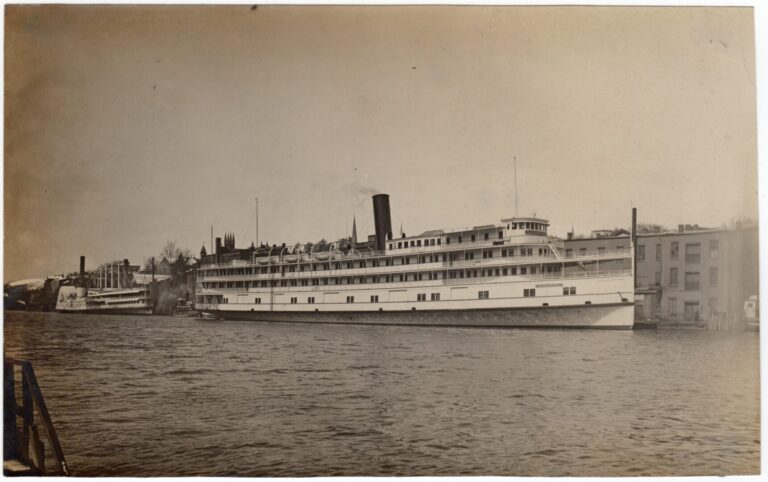This article provides an in-depth consideration of a single report penned on the night of July 27, 1919 by a private detective employed by New York City’s Committee of Fourteen (1905–1932), an influential anti-vice and police reform organization. A close reading of the undercover sleuth’s account, which details his experiences, subjective judgments, and general observations regarding moral and social conditions while aboard the Benjamin B. Odell, a palatial Hudson River steamboat, enables us to enrich our grasp of the courtship and pleasure-seeking practices popular among working women and men active in New York City’s heterosocial and largely segregated amusement landscape during the so-called “Red Summer.” Specifically, the report reveals how wage-earning women articulated femininity and sought individual freedoms, companionship, pleasure, and romance via Hudson River steamboat excursions. The relatively unsupervised atmosphere of such trips was appealing to some working women because it represented an affordable way to attain companionship, prohibited forms of amusement and entertainment, and sexual gratification, a way that sidestepped many of the reputational hazards typically associated with the search for such goods among mainland leisure spaces. Such opportunities were particularly valuable given the crackdowns on public sexuality and late-night amusement spaces that had followed America’s entry into World War I in 1917 and the advent of “wartime prohibition” on July 1, 1919. The article also supplies important contextual information required for proper appreciation of the investigation report in question, including a discussion of the methods and goals of the Committee of Fourteen and a brief overview of prior efforts by Progressive Era urban moral authorities to uncover and control “white slavery,” gambling, and other “vices” witnessed aboard steamboat excursions operating in and around New York, Chicago, and other coastal cities.
Articles by Austin Gallas
Austin Gallas recently earned a PhD in Cultural Studies from George Mason University, where he currently teaches in the Department of Communication. His dissertation is titled "Value of Surveillance: Private Policing, Bourgeois Reform, and Sexual Commerce in Turn-of-the-Century New York." Austin's current research interests include undercover surveillance in New York City history, Progressive Era urban police reform, American literary journalism during prohibition, and the sexual and gender politics of the American minimum wage debate of the 1910s.
Review of The Anti-Capitalist Chronicles by David Harvey (Pluto Press)
The Anti-Capitalist Chronicles is a collection of accessible, loosely connected essays by influential Marxist geographer David Harvey. Based on episodes of Harvey’s podcast of the same name, the book tackles topics related to the contemporary and historical crises of global capitalism. In nineteen brief, topical chapters, Harvey appropriates and reimagines Marxian categories and anti-capitalist frameworks of various kinds in order to report on the changing shape of global capitalism considered as a historically distinct social formation, the internal logics and contradictions which govern capital’s movements in the world, and the obstacles to be overcome by socialist politics.

